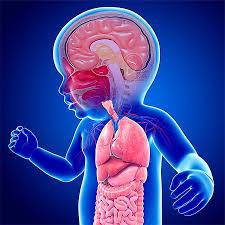Novel Anti-inflammatory Approaches for Currently Untreatable Diseases of the Preterm Baby: Human specimen analysis and animal models of bronchopulmonary dysplasia and necrotising enterocolitis Suitability: Honours/BMedSc (Hons) Location: The Ritchie Centre, Hudson Institute of Medical Research, Level 5, Translational Research Facility, Monash Medical Centre, Clayton Project Leaders: Prof Claudia Nold, Dr Ina Rudloff Email: claudia.nold@monash.edu, ina.rudloff@hudson.org.au Project description: Direct clinical relevance: high. Hands-on learning opportunities: Various aspects of work with mice, workup of tissues for various downstream applications, flow cytometry, histology, immunohistochemistry, protein detection by ELISA. Established collaboration with the Monash Health department of Paediatric Surgery to collect human specimen including blood, intestinal and stool samples. The severe chronic lung disease bronchopulmonary dysplasia (BPD) causes considerable suffering for premature infants and their families and contributes substantially to health care costs. Necrotising enterocolitis (NEC) is a disease of the premature gut that is poorly understood and carries a high mortality. No effective therapy is known for either devastating disease. In view of the importance of inflammation for BPD and NEC, we will assess how effectively innovative anti-inflammatory treatments protect against BPD and NEC. In newborn mice with a BPD-like lung disease, we will quantify if treatments protect against the development of lung pathology as reflected in biochemical and cellular markers of inflammation and loss of alveolarisation and vascularisation on day 3 and 28 of life. In a newborn mouse model of NEC, involving formula feeding and brief exposure to cold and hypoxia, we will assess the protective properties of immunotherapies by histology and flow cytometry and by analysis of selected biochemical markers. In human specimen we will assess the underlying mechanism of disease. Keywords: Paediatrics, preterm infants, inflammation, lung, gut, bronchopulmonary dysplasia (BPD), necrotising enterocolitis (NEC), interleukin, histology, flow cytometry, immunohistochemistry
Baby Microbiome: Investigating the Human Neonatal Lung and Gut Microbiome and its impact on Health Outcome Suitability: Honours/BMedSci/PhD Location: H The Ritchie Centre, Hudson Institute of Medical Research, Level 5, Translational Research Facility, Monash Medical Centre, Clayton Project Leaders: Prof Claudia Nold, Prof Marcel Nold, Dr Samuel Forster Email: claudia.nold@monash.edu, marcel.nold@hudson.org.au
The Ritchie Centre | Student Research Projects 2023
Project description: The neonatal microbiome, in healthy full-term infants and in preterm infants presents with a highly dynamic nature. As such, the microbiome is extremely susceptible to external influences that can dramatically affect the short- and long-term health of the infant. In this project we set out to investigate the underlying mechanisms how the intestinal and pulmonary microbiome influences the neonatal immune system and thereby impacts disease outcome. In collaboration with Monash Children’s, we collect clinical data and samples from term and preterm infants. This project gives you the opportunity to closely work with clinical collaborators and have the opportunity to gain experience in a diverse set of molecular techniques Keywords: microbiome, immunology, intestine, lung,
Targeting inflammatory pathways as a novel therapy for kidney stone-induced renal injury Suitability: Honours/BMedSci (Hons) Location: Immunology and Regenerative Medicine research Group (Starkey group), Department of Immunology and Pathology, Alfred Hospital Precinct, Level 6 Burnet Institute, 89 Commercial Road, Melbourne Project Leaders: Dr Malcolm Starkey, Prof Claudia Nold, Email: malcolm.starkey@monash.edu Project description: Hypothesis/aim: This project aims to improve our understanding of how our immune system protects against the formation of kidney stones and prevents long-term deleterious consequences such as impaired kidney function and susceptibility to reoccurring stones. Brief description of project: Kidney stones affect approximately 9% of the population, with rates increasing globally. Whilst the surgical techniques used to remove obstructive stones have improved, few if any advances have been made to prevent stone recurrence. Stones are a significant risk factor for the development of chronic kidney disease, which currently affects 2 million Australians. We believe the solution to curing kidney stones and related kidney diseases is in harnessing the power of our immune system. Our immune system is known to be pivotal in controlling the severity of inflammation and regulating the repair of our organ systems after injury. However, as our understanding of the immune system grows and becomes more complex, new factors are identified that may hold the key to understanding the “switch” that controls whether an injury is appropriately dealt with or not, and whether the affected organ system is appropriately repaired. Incomplete repair may lead reoccurring injuries and chronic disease. We believe an anti-inflammatory cytokine may be one of the key regulators of that “switch” that controls appropriate repair and regeneration of structural cells in the kidney.
26








